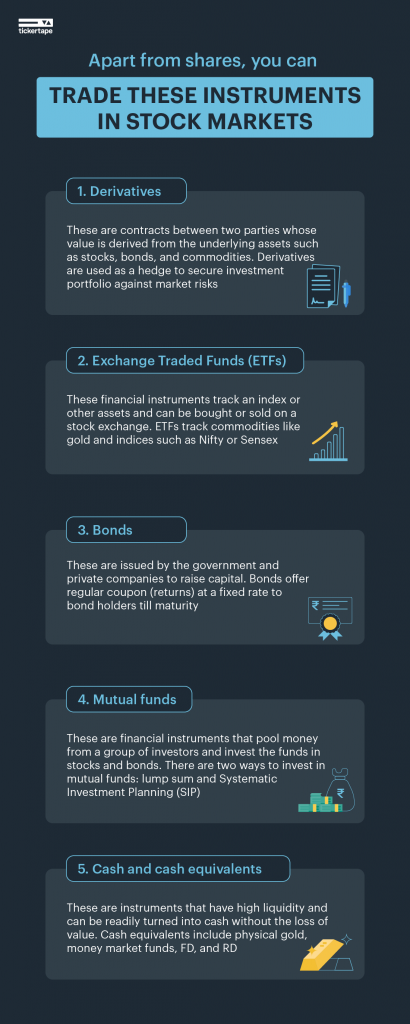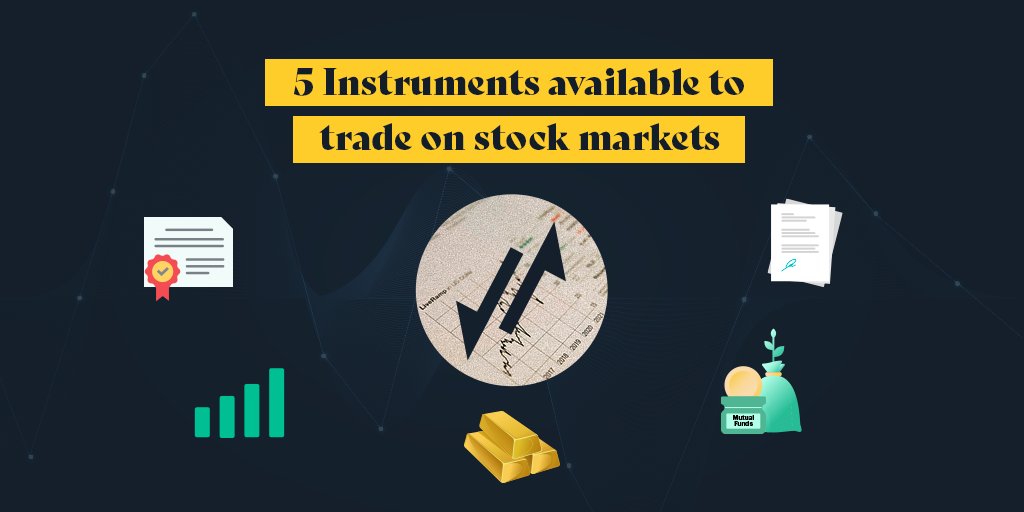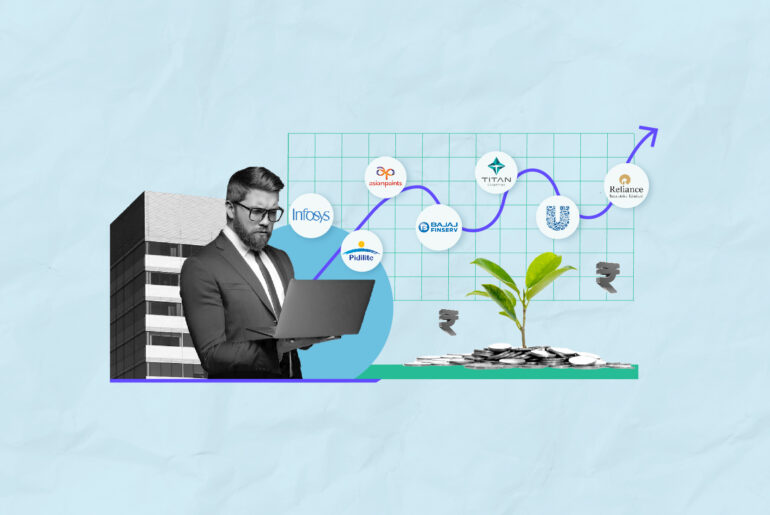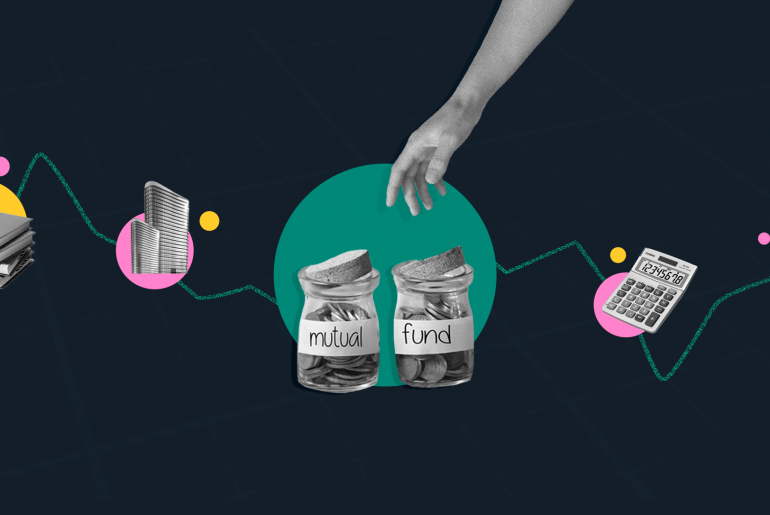Last Updated on May 13, 2021 by Manonmayi
If you are one of those persons who think that investing in the share market means just buying and selling shares then it is time to upgrade your knowledge. Indian stock markets deal in various other financial instruments apart from equity.
This article covers:

Table of Contents
Derivatives
These are financial instruments that form a significant part of stock markets in India. Derivatives are contracts between two parties whose values are derived from the underlying assets such as stocks, bonds, and commodities. For instance, Futures & Options (F&O), one such instrument, are also used for hedging by many investors in India to minimise their downside.
They are riskier than their equity counterpart since they come with an expiry, unlike equity shares. However, the reward is equally higher if you decide to bet on the right derivative at the right time.
ETFs
Exchange Traded Funds or ETFs are one of the types of mutual funds in India. They are a perfect blend of stocks and a mutual fund since they are traded on stock exchanges like shares and are formed by taking money from several investors just like mutual funds. These funds are credible as they are registered with SEBI, the stock markets regulator in India.
ETFs track commodities like gold and indices like Nifty or Sensex, and an index fund. Thus, the price of any ETF changes with the price of the underlying asset or the index that it tracks. It is beneficial as the mutual funds’ costs are not present in an ETF and it is diversified, which means lesser risk than stocks.
Bonds
These are safer financial instruments when compared to equity shares as the returns in bonds are fixed throughout their tenure. Bonds are either issued by the government or private companies and then traded through stock exchanges. The bond issuer floats bonds to raise capital and in return gives regular coupons (or interest) to bond holders till maturity.
The volatility in the bond market is pretty low when compared to stock markets as bonds are more of a loan taken by the issuer. The security of your capital and assured returns in the form of coupon payments make bonds a great financial instrument for risk-averse investors. You can go for Government securities/bonds (G-sec), which is one of the safest investments with assured returns.
Mutual Funds
If you are someone who has little knowledge about stock markets and doesn’t know how to pick quality stocks for your portfolio then go for mutual funds. Mutual funds are run and managed by skilled and professional fund managers who have decades of experience in the market. They collect money from a pool of investors to invest them in shares and bonds and generate returns for them.
There are 2 ways to invest in mutual funds: lump-sum or SIP (Systematic Investment Planning). The former is a one-time payment like FD and the latter is where you put a fixed amount every month from your savings. There are many types of mutual funds such as equity funds, debt funds, hybrid funds, and liquid funds that are based on the investment ideology and risk.
Cash and cash equivalents
This is another asset class from the category of safer investments with high liquidity, making it a favourable asset class. The securities that fall in this category are the ones that can be readily converted into cash without the loss of their value within 3 mth.
Cash equivalents could be physical gold, money market funds, real estate, treasury notes, fixed deposits, recurring deposits, or any other kind of investment. In a nutshell, all those assets that are liquid, apart from cash, come under this category.
So these were 5 other financial instruments, apart from the obvious shares, that are actively traded in stock markets in India. You can choose to invest in any of them or a combination of them based on your financial goals, investment horizon, and your risk appetite.
- 10 Mind-blowing Facts About Harshad Mehta - May 30, 2025
- How DSP’s ETF Campaign Succeeded on Tickertape? - May 7, 2024
- Earnings Per Share Guide 2022 – Importance, Formula and Calculation - Aug 20, 2021





